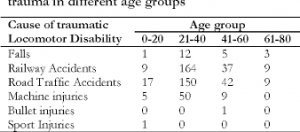home care services melbourne are money given from the government or private sources to an individual who’s disabled or has an impairment that substantially limits one’s capabilities. Some disabilities may not be able to be ignored, and a disabled person might never need income support. Others may not affect a disabled person’s lives but could cause financial distress. Still others may impair a person’s ability to perform the most basic of tasks and could lead to chronic medical conditions that require extensive medical attention.
What Are the Requirements For SSI Disability?
For people who fall into any of these categories, disability benefits can provide much-needed assistance. The Social Security Administration determines if a person has a disabling condition. The disabling medical condition requirement applies whether the condition is new or continuing, permanent or temporary, or serious or minor. A condition that has been present for less than six months, for example, is not considered a disabling medical condition if it is discovered within a six-month period. This rule also applies for injuries or accidents resulting in disabilities.
What Are the Requirements For SSI Disability?
This category includes mental retardation and seasonal affective melbourne disability services. To be considered disabled, mentally retarded people must wait at most five months from the date of onset. After the five month waiting period, however, individuals may start receiving Social Security Disability benefits. Applicants who fail to meet the five month waiting period must wait five months before being eligible for disability benefits.
What Are the Requirements For SSI Disability?
- According to the CPSC Social Security Disability Benefits recipients due to a severe condition must consider certain aspects before applying for supplemental security Income (SSI) benefits. If the disabling condition affects more than one area of a person’s body, he or she may be considered for SSI after five months from the date of onset of the condition. Those applicants who do not meet this requirement do not necessarily receive lower benefits than those who do meet the additional requirements. Additional requirements to be eligible for SSI include a work history of at least one year beginning from the date of disability onset, a steady residence in a home that is at least 50% occupied during the month of disability, and a consistent income. This means that the income must have been earned from work or living assistance. An applicant can only apply for SSI disability benefit benefits if all these elements are present during the month of impairment.
Social Security disability benefit recipients should make sure to regularly review their medical records. A reconsideration of a claim can occur if there is any change in the applicant’s medical history or lifestyle. To correct any errors or omissions in a medical history, the applicant would need new, updated medical evidence. It is best to make an appointment for a medical specialist as soon as possible after the date of disability onset. During this time, the specialist can conduct a complete evaluation and provide his or her opinion as to whether or not the applicant qualifies for disability benefits based on the new medical evidence.
Another common scenario where an individual could become ineligible is if he/she has lived in a home setting for less that five of the last twelve months. This condition does not automatically make someone ineligible to receive SSI disability benefits. The five of the twelve month requirement is intended to measure how long it would take someone to return from work after a period that has been disabled. SSI will not consider a person permanently disabled until the SSI definition has been met. If someone returns to work after becoming disabled from Social Security, they are not considered to have met the five-month requirement.
Employment earnings is another condition that can lead to a disability status determination. According to the Social Security Administration definition, earnings is one’s income, which includes income from employment. If a person earns minimum wage, but is otherwise eligible for disability benefits, they will not be considered earnings when applying to SSI. SSI considers anyone with a gross monthly income from all sources in the last twenty-five thousands dollars to be eligible for disability benefits. Those who earn less than the median income amount of SSI are considered to have earnings that comply with the SSI minimum earnings levels.
Because SSI recipients who don’t meet the earnings requirements can still be provided coverage by other means, it is important you carefully review any documentation your local Social Security office has sent you to verify that you meet the basic qualifications to receive SSI disability benefits. Most likely, you will be eligible for benefits if you have earnings that conform to the SSI definition. Even if your circumstances are not so that you qualify for benefits, you should still carefully examine the documentation you need to submit to claim your disabled payments. It is better to be informed about your eligibility than to find out after you have submitted all your documentation that your eligibility does not allow you to receive SSI disabilities payments.
